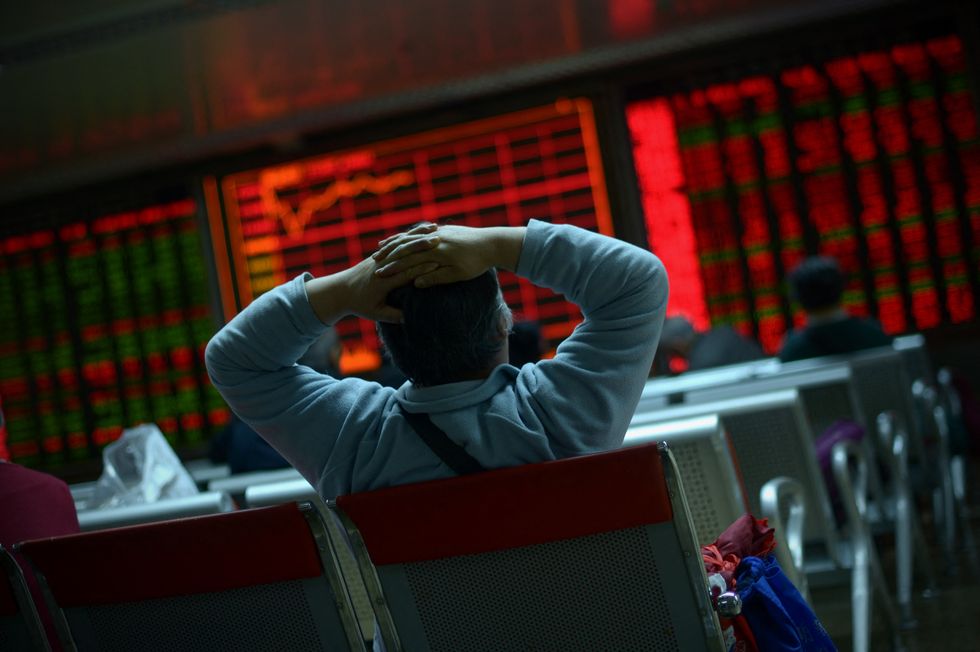The FTSE 100 has suffered its worst drop in more than a year amid fears of a US recession.
Tokyo’s Nikkei 225 suffered it’s biggest ever points loss overnight as it closed down 12.4 per cent.
This is the biggest single-day fall since the Black Monday crash of 1987.
European shares have also suffered their worst drop in two and a half years prompting investors to sell of their riskiest assets.
London’s FTSE 100 fell by two per cent on opening to its lowest level since April
Investors are selling off their risk equities in fears of a slowdown in US economic growth.

There has been a global sell-off in equities on fears of a slowdown in US economic growth
GETTY
Investors worry that the US Federal Reserve may have left it too late to try to support the US economy.
Increasing concerns about the US economy, triggered by weaker-than-expected jobs and manufacturing data, may likely be the “final nail in the coffin” for the case to lift interest rates.
These concerns signal that the Federal Reserve may have left it too late to begin cutting interest rates without damaging the world’s largest economy.
There are now predictions on an emergency interest rate cut by the Federal Reserve next week in an effort to put an end to a sell-off in global markets.
The global sell off’s were prompted after major losses on Wall Street on Friday. Popular tech firms including Amazon and Microsoft were hit the hardest amid worries that an AI-fuelled rally this year may have been overdone.
If the US went into recession, it would harm economies all around the world.
Tan Boon Heng of Mizuho Bank in Singapore said: “The scenario of higher unemployment constraining spending and further restraining hiring and incomes and economic activity leading to a recession is the feared scenario here.”
The US unemployment rate unexpectedly climbing to an almost three-year high of 4.3 per cent sparked fears of recession, with a 50-basis-point cut viewed as a possibility at the Federal Reserve’s meeting in September.
A global equites sell-off was also under way, with the Australian sharemarket on track for its worst two-day decline since COVID-19 shook markets in 2020.
David Bassanese, Betashares chief economist did not think the US would lurch into recession, with his assessment one of an economy “re-normalising” after the post-pandemic era of extreme labour shortages and stimulus-fuelled demand.
He said: “Recessions usually arise from imbalances or shocks – and the US is not really suffering from either at present, with corporate and household balance sheets still in reasonable shape and inflation almost back to the Fed’s target level.
“However the negative dynamic could build momentum and inadvertently tip the world’s biggest economy into at least a brief recession”.